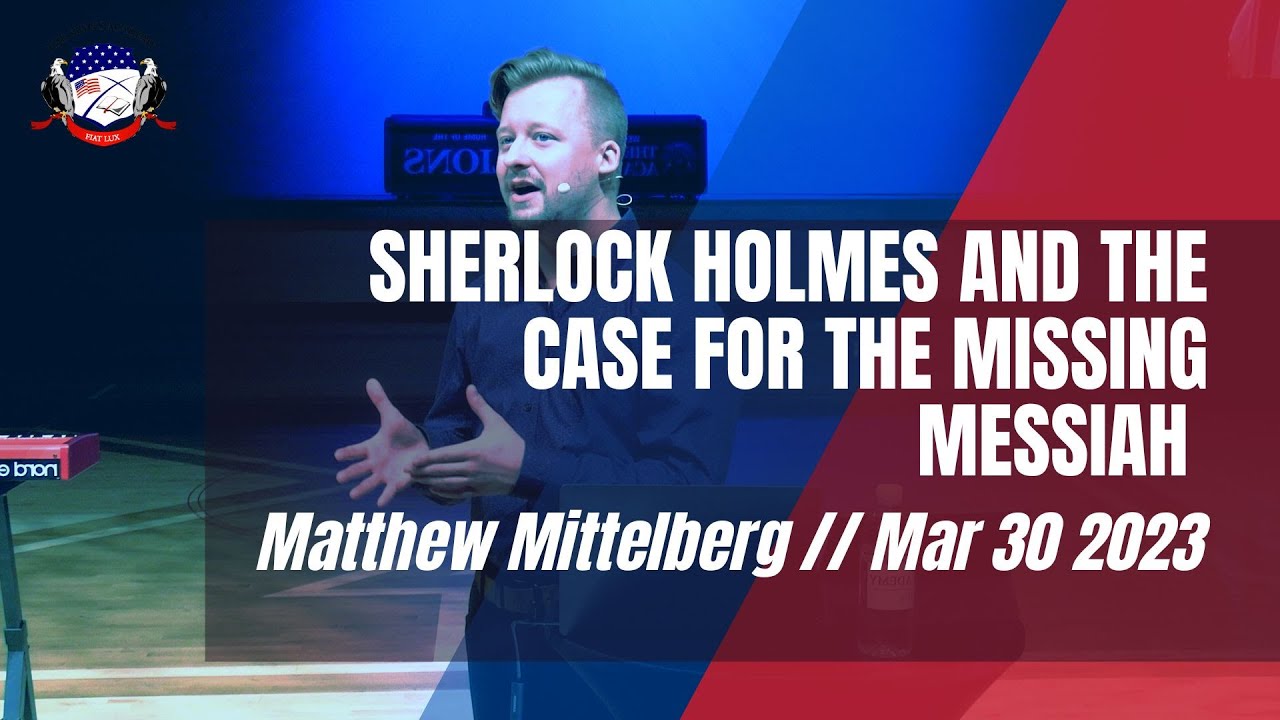Sherlock Holmes And The Case For The Missing Messiah | Matthew Mittelberg
Unleash Your Creative Genius with MuseMind: Your AI-Powered Content Creation Copilot. Try now! 🚀
Sherlock Holmes, the renowned detective known for his unwavering commitment to facts and truth, has captivated audiences with his brilliant deductions and keen sense of observation. But what if Sherlock were to turn his attention to a different kind of mystery - the investigation of his own faith in Christianity? In this speech, we delve into the possibility of Sherlock Holmes exploring the claims and evidence surrounding the resurrection of Jesus, and how his analytical mind might approach this profound question.
The Importance of the Resurrection
Christianity, at its core, rests on the central claim of the resurrection of Jesus. This pivotal event holds immense significance, as it validates Jesus' claims and teachings, affirming his authority on matters of life and death. Without the resurrection, Jesus' message would lose its power and his teachings would be rendered meaningless.
The "Minimal Facts" Approach
To make a compelling case for the resurrection, we can adopt the "minimal facts" approach. These are facts that are widely agreed upon by historians, regardless of their religious or political beliefs. By focusing on these common grounds, we can establish a strong basis for belief in the resurrection.
The four minimal facts that form the foundation of this argument are as follows: Jesus was dead, he was then gone, he was seen, and he was reported. These facts, acknowledged by scholars across various backgrounds, provide a starting point for our investigation.
Investigating the Evidence
Let us begin our inquiry by examining the death of Jesus. Inspector Lestrade, a character from the TV show Sherlock, proposes the "apparent death theory," suggesting that Jesus was only mostly dead and later revived in the tomb. However, scholars reject this theory, asserting that Jesus was indeed dead on the cross.
Moving on, we encounter the empty tomb, a crucial piece of evidence. Even Jesus' enemies admitted its emptiness, but instead of acknowledging the resurrection, they accused the disciples of stealing the body. This explanation, however, fails to account for the overwhelming evidence that points to the reality of the empty tomb.
The gospels, which document the life and teachings of Jesus, contain intriguing details that bolster their credibility. These accounts include embarrassing facts such as the disciples' abandonment of Jesus and Peter's denial of him. Notably, women, who were deemed unreliable witnesses at the time, were the first to witness the empty tomb. These embarrassing and unexpected details lend credibility to the gospels, as they demonstrate a commitment to honesty and accuracy in reporting the events.
The Disciples' Belief and Sacrifice
A compelling aspect to consider is the disciples' unwavering belief in the resurrection, even to the point of sacrificing their lives for it. This steadfast conviction raises questions about the authenticity of their experiences. Hallucination, a theory proposed by Inspector Lestrade, fails to explain the shared nature of the disciples' encounters with Jesus. Hallucinations are private experiences that cannot be shared with others, making it unlikely that multiple individuals would experience the same hallucination simultaneously.
Furthermore, the legendary hypothesis, which suggests that the idea of Jesus' resurrection developed later on, is contradicted by early records. The Creed found in First Corinthians 15, written by the Apostle Paul, indicates that the belief in Jesus' resurrection existed shortly after the crucifixion. This early documentation challenges the notion that the resurrection was a later invention.
The Verdict
In light of the evidence presented, it becomes increasingly difficult to dismiss the resurrection as a mere myth or fabrication. The historical facts surrounding Jesus' death and the empty tomb, coupled with the disciples' unwavering belief and sacrifice, provide a compelling case for the reality of the resurrection.
As Sherlock Holmes would attest, the pursuit of truth requires a meticulous examination of the evidence. While faith may extend beyond the boundaries of empirical proof, the historical foundation upon which Christianity stands offers a thought-provoking invitation to explore the claims of Jesus' resurrection.
In conclusion, let us embrace the spirit of Sherlock Holmes as we embark on our own investigation of faith. The resurrection of Jesus, supported by the "minimal facts" approach, presents a compelling case that challenges us to consider the evidence and its implications. May we approach this inquiry with open minds and hearts, ready to explore the depths of this enduring mystery.

Related Recaps
- Penélope Cruz and Margot Robbie: the two-way J12 Interview — CHANEL Watches
- Reborn Baby Feeding & Changing + Big Spit Up Mess & Clean Up With Baby Evelyn.
- Roddy Ricch - The Box [Official Music Video]
- Ở một mình, nữ sinh viên đại học bị gã thợ hồ xông vào giở trò, để lại chiếc cúc áo làm ám hiệu
- Jem Bendell | What Could Possibly Go Right?